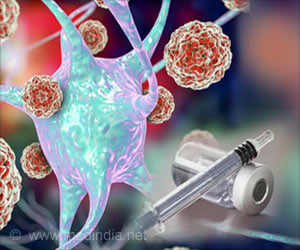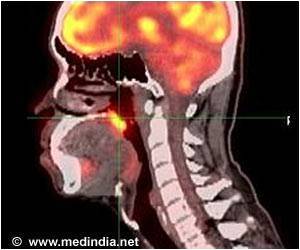Regular use of common painkiller medicines such as aspirin and ibuprofen can prolong survival in a group of head and neck cancer patients as per the recent study.
- Head and neck cancer is a malignancy involving structures in the head and neck region and about 65000 cases occur annually in the US
- Nearly a third of head and neck cancer patients have an alteration (mutation) of the PIK3CA gene
- Regular use of nonsteroidal anti-inflammatory drugs (NSAIDs) in head and neck cancer patients having the PIK3CA mutation has been shown to prolong five-year survival rates
This is the first study that shows the benefit of using NSAIDs in a specific group of head and neck cancer patients and the possibility of implementing NSAID therapy in these patients to improve the overall outcome.
The findings of the study appear in the Journal of Experimental Medicine.
"Our results suggest that the use of NSAIDs could significantly improve outcomes for not only head and neck cancer patients, but also patients with other cancers that contained the PIK3CA mutation," said Jennifer R. Grandis, MD, a UCSF professor of Otolaryngology, head and neck surgery, and senior author of the paper.
Read More..
Role of NSAIDs in Head and Neck Cancer Patients with PIK3CA Gene Mutation
- For the study, the team analyzed surgically removed head and neck tumor samples of 266 patients from the University of Pittsburgh
- Nearly 84 percent of patients were smokers who had received chemotherapy/radiotherapy following surgery. Average survival of the patients was 66 months after diagnosis
- On tumor analysis, 75 tumors (28%) were found to have PIK3CA gene mutation
- Among the regular NSAID users, 73 percent took aspirin exclusively and 93 percent took a preparation containing aspirin as a component
- The regular users started NSAID therapy soon after the diagnosis of head and neck cancer
- The team found that regular of NSAIDs for a minimum of six months in patients with PIK3CA gene mutation increased overall five-year survival rates from 25 to 78 percent compared to patients with the mutation who did not take regular NSAIDs
- Patients without PIK3CA gene mutation did not have any benefit by taking NSAIDs
Possible Mode of Action of NSAIDs in Improving Survival
The NSAIDs possibly prevented tumor growth by inhibiting the formation of a chemical called prostaglandin E2. It is likely that some sort of interaction between the PIK3CA gene pathway and the COX pathway of the NSAIDs results in an overall better prognosis in these patients, reveal scientists.Head and Neck Cancer & PIK3CA Mutations
Head and neck cancer is an aggressive malignancy that generally carries an unfavorable prognosis. It accounts for about four percent of all cancers in the US and average five-year survival is 45 percent.Most cases are reported in adults above 50 years of age and the chief risk factors include smoking, alcohol use and human papillomavirus (HPV) infection.
Among head and neck squamous cell cancers, PIK3CA is the most commonly mutated cancer-associated gene, seen in about 34 percent of head and neck tumors. In head and neck cancers associated with HPV infection, more than half the cases show the PIK3CA mutation.
Future Plans
However, the research team suggests that their results have to be validated by a further prospective trial which is being planned by the study authors soon to address the limitations of the current study. Possible limitations of the study include the small size of the participants, and also the type, timing, and dosages of NSAIDs used by these patients.Summary
Regular use of NSAIDs for at least six months can significantly improve survival in head and neck cancer and can potentially be used as therapy in a specific subset of these patients.Reference:
- Use of nonsteroidal anti-inflammatory drugs predicts improved patient survival for PIK3CA-altered head and neck cancer - (http://jem.rupress.org/content/early/2019/01/25/jem.20181936)
Source-Medindia















